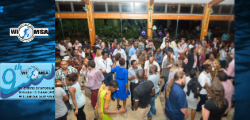
Western Indian Ocean Marine Science Association (WIOMSA) Symposium Programme comprises a combination of plenary and parallel sessions on knowledge improving life in ocean and coastal systems.
The Symposium Programme :
Vulnerability, Resilience & Adaptation
- Implications of changes in major biophysical drivers on the coastal and marine environment. Major drivers include: demographic pressure, economic development, socio-political changes and climate change.
- Trends in extreme events and major oceanographic processes
- Combined effects of climate change, land-use practices (e.g. deforestation, coastal development that forms a barrier to mangrove landward migration), and other human impacts (e.g. pollution, eutrophication) on resilience and adaptive capacity.
- Costs associated with addressing the implications of global change
Biodiversity and ecological processes
- Biodiversity and diversification processes (including biology and reproduction of marine organisms; connectivity of marine populations and community resilience)
- Functional ecology of coastal ecosystems such as estuaries, coral reef, rocky shores, mangroves etc.
- Ecology and conservation of endangered marine species (eg. turtles, mammals, sharks, seabirds)
- Marine organisms and bioactive natural substances
- Ecosystem assessment and monitoring: roles of bioindicators, chemical tracers and models
- Ecosystem modeling and forecasting
Utilization of resources
- Fisheries: trends, challenges and sustainability
- The ecological impacts of fishing
- Ecosystem-based fishery assessment and management, in theory and practice
- The biology and ecology of marine birds, invertebrates, and mammals related to fisheries and ecosystems
Human dimension and governance systems
- Economic/Social/Environmental/Cultural opportunities and challenges of economic activities in the coastal and marine environment
- Communities’ use of, and dependence on, ecosystem services for livelihoods
- Interactions between conservation initiatives and poverty reduction strategies
- Mechanisms to strengthen fisheries management to meet both socio-economic and environmental conservation objectives
- Effectiveness, efficiency and accountability of policies and legislation of marine and coastal resources
Understanding Ecosystem Services
- Quantifying, valuing and describing patterns of ecosystem service provision from different ecosystems
- Social and cultural processes underlying ecosystem service provision
- Mainstreaming biodiversity conservation into national development plans
- The contribution of natural capital to economic development
Innovations in Support of an Ocean-based Economy
• Innovative solutions to climate change and disaster risk reduction